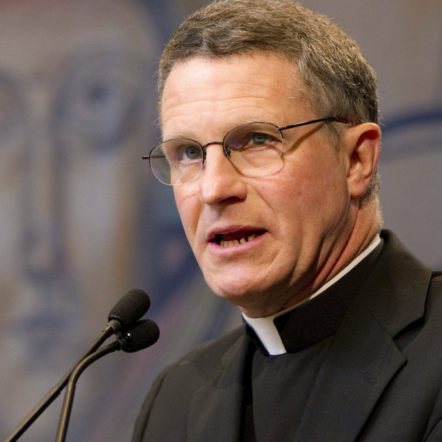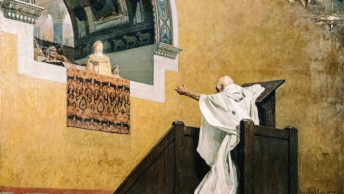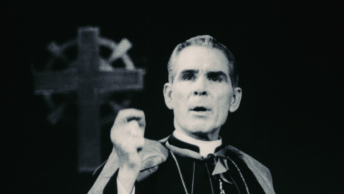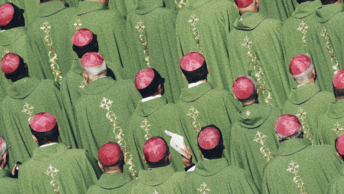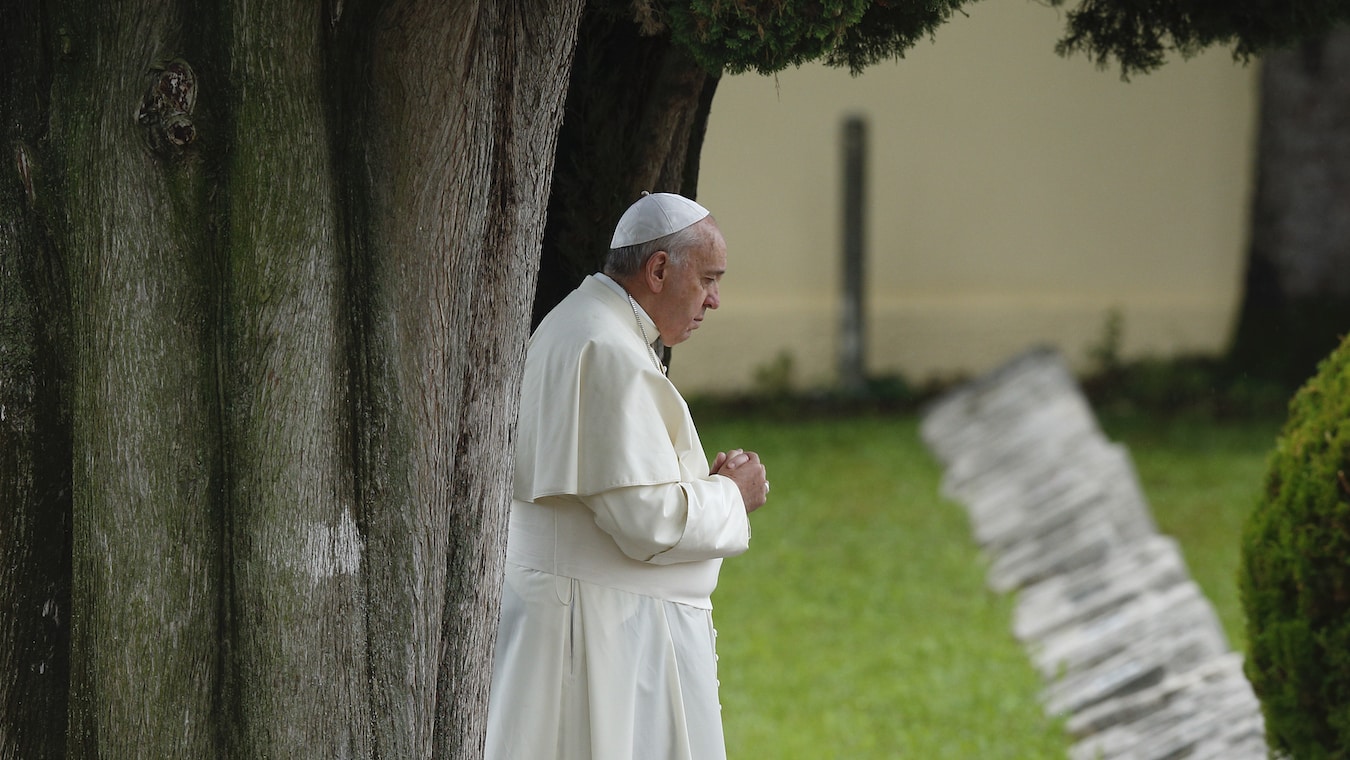A recent study revealed that half the diocesan priests in the U.S. are experiencing significant burnout. The researchers found that the “major factor” for this is the low “level of trust between a priest and his bishop.“ When asked whom they turn to for “social support,” most priests cited “lay friends, family and parishioners” rather than their bishops. Only 36 percent said their bishops support them in their “personal struggles,” whereas 92 percent of the bishops perceive themselves as very supportive. Their unrealistic self-image obviously exacerbates the problem.
The lack of trust is not limited to diocesan priests. In a 2013 Pew study, only 27% of the Catholic laity considered their religious faith “strong.” That was half the number of Protestants (54%). Moreover, only 53% of the “strong” attended Mass at least once a week. (Among all Catholics only 24% did.)
The Catholic hierarchy have recently indicated that they intend to address these issues. The American Council of Bishops (USCCB) has elected a new president, Archbishop Timothy Broglio, who has in the past shown a willingness to speak out on important matters, notably abortion and gay marriage. And in his first press conference since his election, he promised to provide “a good example of listening but then also an example of leading,” adding that “the bishops have made great strides working together and talking to one another. Hopefully this process will continue.”
Unfortunately, the last lines of the Archbishop’s statement give cause for concern. It is always a good thing for the bishops to talk to one another, but a much more important thing is for the bishops to talk with their diocesan priests and to the laity. And an even more urgent need than simply talking with them is providing better leadership. It is not clear from the Archbishop’s statement that he and his fellow prelates understand this.
Why would they not understand it?
Because they and their predecessors over the past half-century have been pressured into accepting an extreme view of “separation of church and state”—that speaking of “political matters” from the pulpit violates the law. They are thus not only silent about such matters themselves but also require their priests to be silent. Among the obvious results of such clerical silence are these: the laity are denied a theologically informed understanding of the important issues of the day; they therefore embrace secular views that differ, often radically, from Church teachings; and the more they embrace such views, the more alienated they become from the Church. (To see this in biblical imagery, picture a flock of sheep having been abandoned by their shepherd and wandering off on their own.)
The separation of church and state is often linked to Jesus’ command to “render unto Caesar the things that are Caesar’s and to God the things that are God’s.” The idea is that since politics is a secular rather than a spiritual matter, the Church should refrain from venturing there.
That argument is wrong! The correct reasoning is this: Monarchy has been replaced by other forms of government, in our case a democratic republic; the line between secular and spiritual has become blurred; the government sometimes asserts itself in matters that are primarily (or at least jointly) moral/spiritual; such assertion in no way supplants the right—indeed, the biblical obligation—of the Church to express its views on such matters.
In short, far from remaining silent, the prelates and their clergy should speak out from the pulpit and explain Catholic teaching on contemporary issues, including controversial ones. Here are some notable examples of such issues:
Social Theories and Movements: Are the teachings of prominent social movements such as Black Lives Matter and Critical Race Theory consistent with Catholic social teaching? If they are clearly not consistent with Catholic teaching, is it morally wrong to support them?
Voting: Do citizens have a moral obligation to vote in elections? If so, do they have an obligation to support candidates whose views are consistent with Scripture and Church teaching? What does Church teaching consider a morally responsible approach to choosing candidates we will vote for?
Parenting: Do parents have a moral obligation to teach their moral and religious beliefs to their children? Do they also have an obligation to monitor what their children are learning in the classroom to be sure their parental teachings are not being undermined?
Teaching: Should teachers at any level of education have the right to promote their personal philosophical, religious, and/or political beliefs in the classroom? Should they, instead, be required to present views on all sides of issues? Should they also be required to let parents know if they depart from school rules in such matters? Should elementary and/or secondary schoolteachers be permitted to offer graphic instruction about sexual acts and techniques?
Medical Care: Should guidance counselors or physicians be allowed to discuss gender identity with minors and recommend/prescribe treatments that will change young people’s gender?
News and Social Media: Do men and women who work in these professions have a moral obligation to report the truth regardless of whether it flatters or challenges their preferred narratives? If so, what are the consequences of ignoring the truth on their readers/viewers and on the nation? And what are citizens’ moral responsibilities for identifying and using media that are honest in reporting?
Criminal Justice: Do local, state, and federal agencies have a moral responsibility to enact and apply laws that protect citizens? Do voters have an obligation to support candidates that keep them safe? If so, does that obligation override party preference? In other words, is it a sin to vote for a less competent candidate merely because of party affiliation?
Immigration: Does the government have a moral obligation to protect the nation’s borders by enacting and enforcing immigration laws and restrictions? Should those laws make special provision for applicants in imminent danger of persecution? Do people from any country have a moral right to enter another country in violation of its laws—in other words, without permission?
Charity: Catholic teaching emphasizes the virtue of loving our neighbors as we love ourselves. The Parable of the Good Samaritan is the simplest and most direct example of that virtue. In our country this virtue has been made an obligation of government that is met by taxing citizens and giving the money to people and institutions. Such giving is sometimes done with little or no regard to the taxpayers’ moral and religious beliefs or to the potentially negative impact on the recipients. Is this system morally flawed?
Note that all of these examples concern moral issues to which Scripture and Catholic teachings apply. The Constitution guarantees freedom of speech and freedom of religion and both apply here. There can therefore be no question about the right to address these issues from the pulpit.
To bishops who have grown up believing that political matters belong to the state, moral/spiritual matters belong to the Church, and neither can intrude on the other’s domain, what I have said here will likely come as a surprise. In their minds they are forbidden from speaking of the matters I mentioned. These bishops should realize that most of the matters thought of as “political” are at root moral/spiritual in nature and religious leaders therefore have the right to speak about them from the pulpit, the bell tower, or the Church parking lot if they wish.
What will speaking about such subjects to the laity accomplish? First and foremost, it will end the prelates’ abdication of the responsibility given them by Jesus Christ Himself—tending to the moral and spiritual needs of their “flocks.” Second, it will allow the priests of the various dioceses to elevate and greatly enhance their guidance to their parishioners. Third, it will help the laity meet their obligation to live as God would have them live. Fourth, it will restore priests’ and parishioners’ trust in the Catholic hierarchy. Finally, taken together, these accomplishments will help prevent the downfall not only of our nation but also of our civilization.
Copyright © 2022 by Vincent Ryan Ruggiero. All rights reserved

